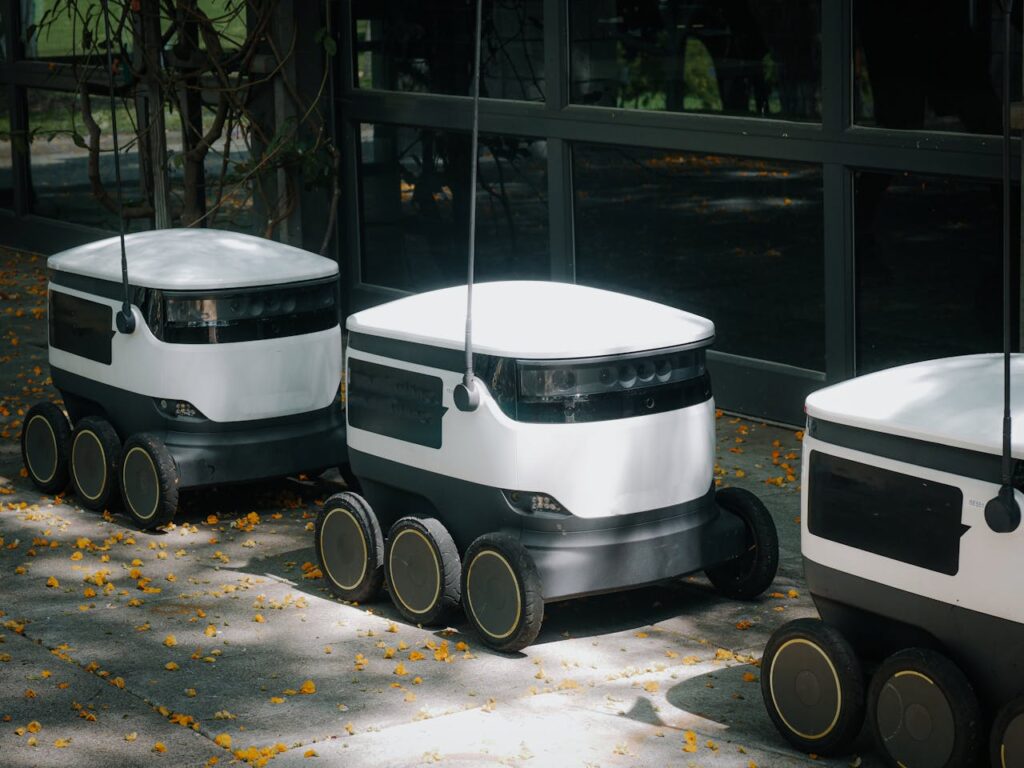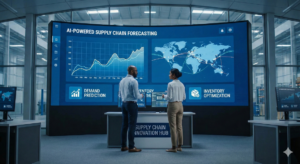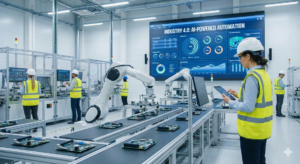How Autonomous Systems Are Redefining Industries While Artificial Intelligence Agents Are on the Rise

How Autonomous Systems Are Redefining Industries While Artificial Intelligence Agents Are on the Rise
The field of artificial intelligence (AI) has progressed beyond the realm of conjecture about the next few decades. As of the year 2025, artificial intelligence agents, which are self-sufficient systems that are able to think, learn, and make decisions, are quickly altering industries all over the world. Artificial intelligence agents are able to carry out difficult tasks on their own, often with just minimum supervision, in contrast to conventional AI tools, which need direct human input. As a result of this change, not only is the way in which companies function being redefined, but also the future of work and innovation is being brought about.
AI Agents: What Are They?
Machine learning, natural language processing (NLP), and decision-making algorithms are the techniques that are used by artificial intelligence agents, which are sophisticated software systems that are meant to carry out tasks independently. Different from straightforward chatbots or programs that are based on rules, these agents are able to assess data, learn from patterns, adapt to changing situations, and even work along with other artificial intelligence systems.
For instance, an artificial intelligence agent may answer customer inquiries, manage goods in a warehouse, and automatically alter prices in an online store. This agent is able to learn and improve with each engagement you have with it.
The Ways in Which Artificial Intelligence Agents Are Changing Key Industries
Intelligent Diagnosis and Care for Patients in the Healthcare Industry. AI agents are aiding in the diagnosis of illnesses, evaluating patient data, and tailoring treatment regimens, all of which are aspects that are altering the healthcare industry. They are able to evaluate vast amounts of medical information, recognize trends that human physicians would overlook, and even anticipate future health problems before they become urgent.
1. Diagnostic tools that are driven by artificial intelligence have the ability to identify illnesses such as cancer or heart disease with exceptional precision, hence lowering the number of incorrect diagnoses and improving patient outcomes.
2. Automated Trading and Fraud Detection in the Financial Department
Agents powered by artificial intelligence are transforming the way in which transactions, investments, and risk management are handled in the financial industry. Unlike human traders, autonomous trading agents do real-time analysis of market data, allowing them to execute deals more quickly and accurately than any human trader.
The use of artificial intelligence systems to monitor transactions for suspicious behavior and detect possible dangers before they develop into financial losses is an example of fraud prevention.
3. Personalized shopping experiences are available via retail and online commerce.
Using artificial intelligence agents, retailers are able to offer highly tailored experiences for their customers. Chatbots that provide product recommendations based on a user’s browsing history and virtual shopping assistants are two examples of how artificial intelligence agents may boost consumer happiness and sales.
Using artificial intelligence techniques, dynamic pricing is achieved by adjusting product prices depending on demand, competition, and customer behavior without the need for human interaction.
4. Production Lines That Are Responsible For Their Own Production
Machines are operated by artificial intelligence agents in contemporary manufacturing, which also monitor quality control and optimize production schedules. They are able to identify inefficiencies, anticipate breakdowns in equipment, and automatically plan maintenance, which ultimately results in decreased operational expenses and downtime.
5. Transportation and Logistics: Technology with Autonomous Driving Capabilities
Autonomous artificial intelligence systems are the driving force behind autonomous vehicles, drones, and delivery robots. Currently, artificial intelligence agents are being used by logistics organizations in order to improve delivery routes, minimize fuel consumption, and simplify supply chain processes.
The Technology That Underpins Artificial Intelligence Agents
The following cutting-edge technologies are used by artificial intelligence agents:
- It is possible for agents to learn from data and improve over time via the use of machine learning (ML).
- Natural Language Processing (NLP): Gives them the ability to comprehend and converse in human language.
- Through a process of trial and error, reinforcement learning assists agents in adapting to new situations and making better judgments.
- The field of computer vision is used for image-based analysis in a variety of sectors, including healthcare and manufacturing.
- Advantages of Automated Intelligence Agents Round-the-Clock Operation: They are able to carry out activities without being fatigued.
- When repeated processes are automated, labor expenses and mistakes are reduced, which results in cost efficiency.
- Scalability refers to the capacity of artificial intelligence agents to manage several tasks concurrently and to scale up activities.
- Data-Driven Insights: These insights provide precise analytics, which assist firms in making more informed purchasing choices.
Considerations of Ethical Implications and Obstacles
AI agents, while the great promise they provide, nevertheless present a number of challenges:
- There is a possibility that specific jobs might be replaced by automation, which would result in disruptions to the workforce.
- Artificial intelligence agents often depend on sensitive data, which raises questions about the ethical and security implications of their usage.
- Unfairness and Bias: Artificial intelligence agents may provide unfair results if they are trained on biased data.
- Technology Dependence: An excessive dependence on artificial intelligence may result in a reduction in human supervision and critical thinking.
AI Agents: What the Future Holds
With the increasing sophistication of AI agents, we may anticipate that they will be able to undertake jobs that are both more complicated and creative. It is more probable that future artificial intelligence systems would work in conjunction with people rather than replacing them. These technologies will serve as intelligent partners that boost productivity and creativity.
Artificial intelligence agents are already providing assistance in the areas of writing, graphic design, and video production in the content creation industry. They contribute to the discovery of new pharmaceuticals and the acceleration of research achievements in the scientific community. The objective is to establish the correct mix between human knowledge and automation that is powered by artificial intelligence.
The emergence of artificial intelligence agents is not merely a movement in technology; it is also a revolution in both culture and the economy. It is probable that industries who are willing to embrace this shift will gain a considerable competitive advantage, whilst those that are resistant to it may fall behind. Our attention should be directed on the development of artificial intelligence in a responsible manner, with the goal of ensuring that these self-sufficient systems are open to scrutiny, ethical, and useful to society as a whole.




